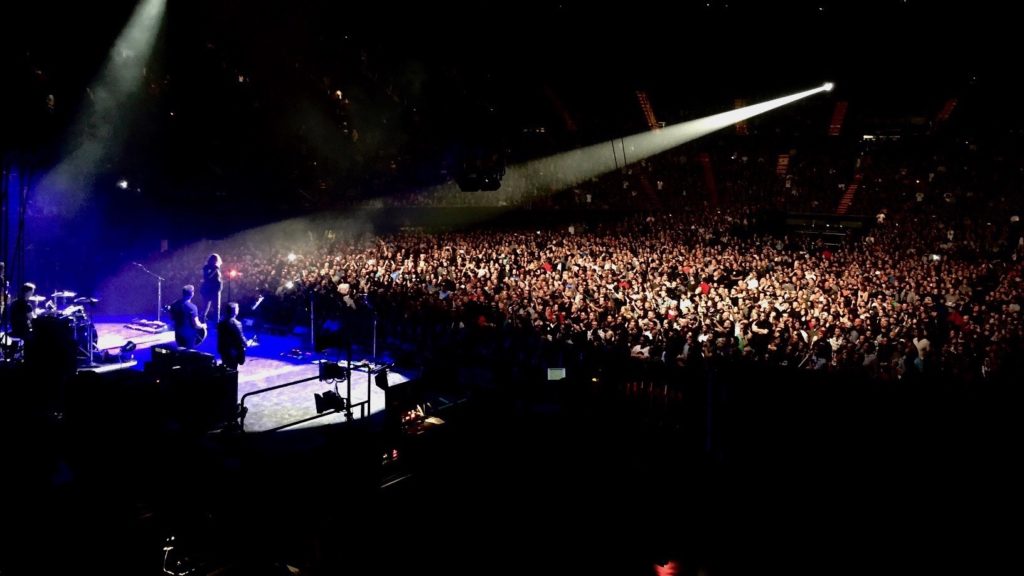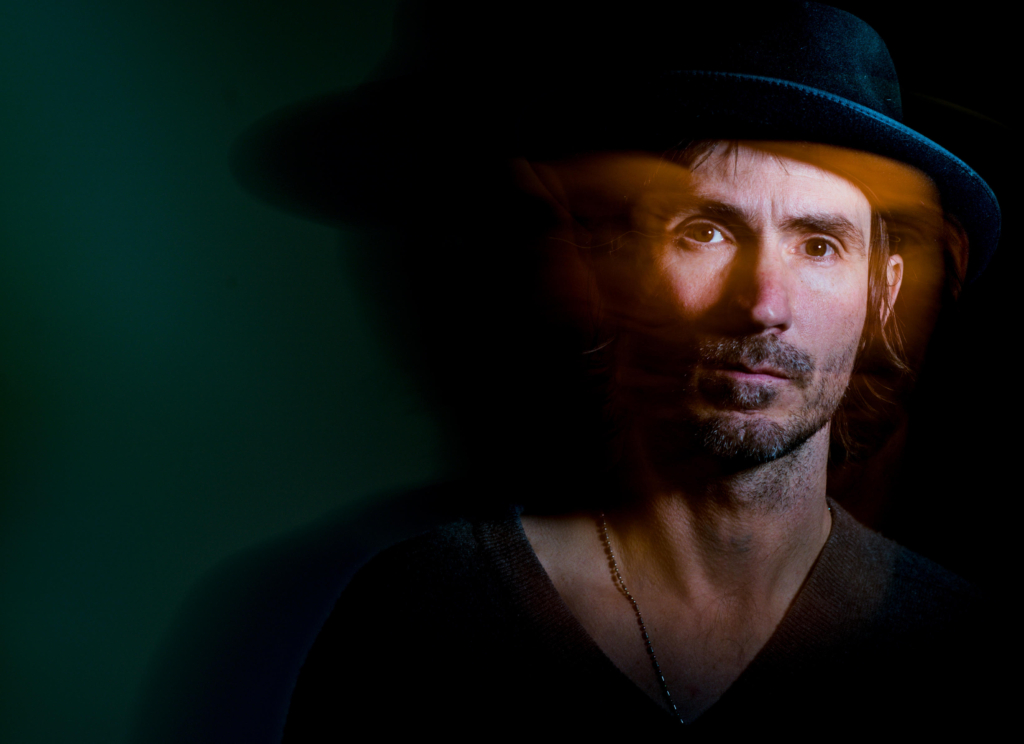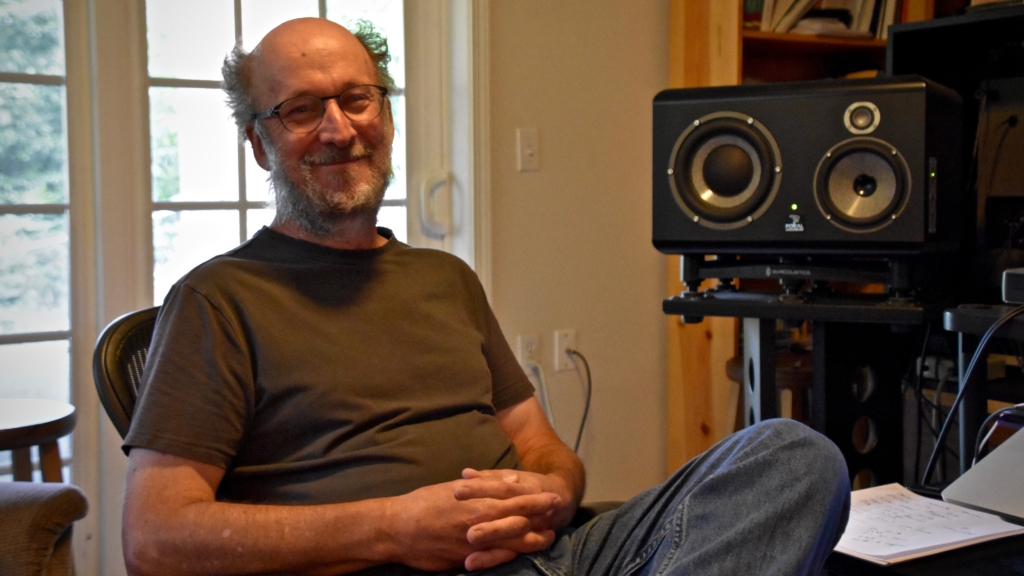Chris Cornell’s first solo record, Euphoria Morning turns twenty this year. The complexity of its sound and exceptional atmosphere has inspired me for a long time to get to know its authors’ work, so I can get closer to the one-off unrepeatable magical process of its creation. Although solitude, vulnerability, melancholy appear directly in these songs, indirectly they are more about consciousness, common musical inventions and healing harmonies.
On the occasion of this anniversary I was talking to Mr. Alain Johannes. He is a late friend of Chris Cornell and also the co-composer, producer, and sound engineer of the album. The Chilean-American multi-instrumentalist musician co-founded multiple brilliant bands: What Is This (with Hillel Slovak, Flea), Walk The Moon, and Eleven (with his common law wife, Natasha Shneider and drummer, Jack Irons). He worked with Queens of the Stone Age, Them Crooked Vultures, Arctic Monkeys, and supported musicians like Mark Lanegan, PJ Harvey and even Chris Cornell.
Mr. Johannes answered my questions in writing. This interview is to introduce Euphoria Morning to more people in Hungary: a lesser-known, unique record made by three friends, three artists who supported each other.
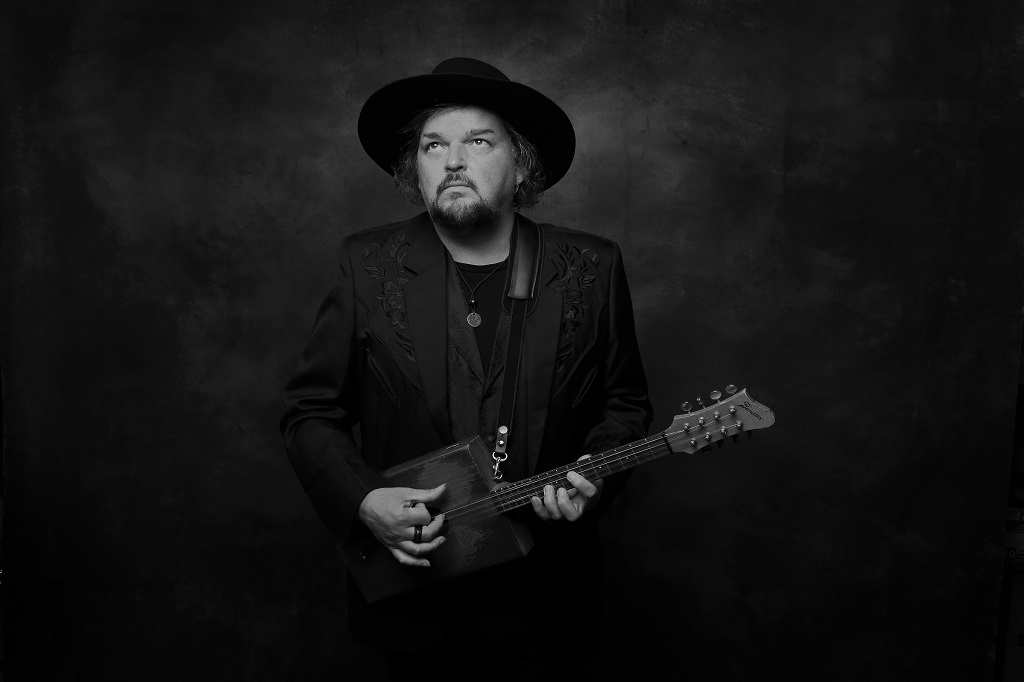 Alain Johannes (Photo: Stephen Linsley)
Alain Johannes (Photo: Stephen Linsley)
By the time Euphoria Morning came out in September 1999, a lot of things changed in the world of rock music: most ‘grunge’ bands broke up or withdrawn temporarily. At the same time, as the digital age came in the front, new bands appeared and responded to this new lifestyle (for example nu metal, industrial rock…). During these times Cornell went back to some old songs of his, which he could not work on as a member of Soundgarden. On one hand, because the group did not exist yet, and also because the ex-members were not inspired by these tracks. Even so, he found it important to work on these and publish them as new material.
What was the idea behind this? How long had he been planning on making his first solo album?
I’m not sure how long he’d been planning it or if it was something that rose up in that time, but he stayed with us at our studio home 11AD to decompress and chill after Soundgarden disbanded and in that time we would play around with some ideas he had. A bit later it became clear that’s where it was headed.
When people look at Cornell’s solo records, generally the first thing to do is to compare it with Soundgarden’s output or standard they were together. These comparisons may seem natural but should not be dominant. We tend to ignore something important in Chris’s versatile activity (being a leader of two bands, making solo records, movie soundtracks, collaborating with many musicians etc.): his experimental attitude. This one is crucial if we are thinking of Euphoria Morning. What fueled this experimental attitude: rejuvenation or finding new ways in music?
I think in terms of Euphoria Morning a lot had to do with the chemistry between Chris, Natasha and I as we would explore and play around with ideas. He had a few songs in the works which Natasha helped him arrange harmonically and her and I wrote a few musical beds and riffs for him to write melodies and lyrics to. We’d spend a lot of time just listening to awesome music, watching movies, having conversations about life, creativity, art…
After touring together with Soundgarden and a Christmas song (Ave Maria) the band Eleven begun helping him in creating his first solo record. How did the idea present itself? Who was the initiator that suggested working together? Which song or notes were the first ones that Chris Cornell showed you both?
He originally stayed with us after Soundgarden disbanded not long after the European tour when Eleven was the support band. We just chilled and hung out and we worked on Sunshower and Ave Maria on our small recording setup. He invited Al Cafaro the president of A&M at the time to come to visit and we played him some of Eleven’s new music which lead to a record deal. We convinced Al Cafaro to give us the entire recording budget to buy our own full-on recording studio. So 11AD was born. He came down to stay for a longer period to prepare some demos and that was when we worked on the songs for the album like I mentioned earlier. At the time Daniel Lanois was going to produce the album and at the last minute he cancelled his projects and when Chris asked: “What am I gonna do?” Natasha said “Fuck it! Let’s do it ourselves! We have everything we need…”. He smiled and said “OK!”. He sent for a bunch of his guitars and amps and we had so many instruments and awesome mics, pres and compressors and frankly some of the most amazing and varied acoustic environments in that old 20’s house…we just dug in and worked on the album for several months almost entirely in secret [laughs]. All the instruments were supporting each other but with a clear voice, a personality of its own. Hard to put into words but one can hear it on Euphoria Morning.
So to answer who was the initiator: it was Chris and Natasha combined. He trusted us as collaborators for the writing and arranging and then she convinced him to trust us as co-producers, engineers and mixers.
Euphoria Morning is a unique record. Musicians working on this album were completely in sync – Chris Cornell stated this in numerous interviews. How do you remember the seven-month-long work process of the album?
The core was Chris, Natasha and I and we’d invite our rad drummer friends, Freese, Cameron, Rieflin, Indrizzo, Upchurch, depending on the song(s). Natasha played all the keys, Chris and I the guitars. On bass Markmann, Falkner and myself. We worked at a chill pace. A lot of sonic exploration for a day or two, take a couple of days off just run around do fun stuff. He’d go back to Seattle for a week or two. We were in no hurry and there was no pressure from the outside. Just our own internal high demand on a achieving a timeless album.
In another interview Cornell said it seemed that making a solo record was easier because you do not have to go over the songs together with the band. On the other hand, it is harder, because you have to make decisions alone. The author is responsible for his art alone. But this may not be the situation with Euphoria Morning, because it is not a solo record in a classical meaning. Also, as its instrumentation shows, that the band Eleven, beyond the members’ main instruments, were playing many other instruments (theremin, mandolin, clarinet, tabla etc), wrote songs (Follow My Way, Pillow of Your Bones, Disappearing One) and were also producers of the album. How did the trio share these roles?
Add Mission to that list…Chris played a lot of guitars and so did I as well as horns and “exotic” instruments. We had a few hundred instruments at 11AD from all over the world. Loving the sound of textures I started collecting a long time ago and since I’ve played guitar since I was roughly 4 years old I became interested in other instruments. Not to any kind of technically high level but enough to get a good sound and to know how to play it to create an atmosphere in an arrangement. Natasha had the most amazing musical mind. Perfect pitch, which she hated having [laughs], and a deep intuitive genius-level understanding of harmony, of counterpoint, how to create tension and release against a melody. The beauty of that. So with my kinda fearless jump head first improvisational approach and Chris’ genius as a songwriter and lyricist and as an amazing composer, not to mention his creativity on the guitar well…it was a really special combination that flowed so well. The three of us together. Just the most amazing, fun experience.
In a Rolling Stone-interview, Cornell was talking about a personal and professional crisis during the last years of the ’90s, which – he reckons – led him to make several bad decisions. According to him, one of those was the ’Euphoria Morning’ title which had been changed to ’Euphoria Mourning’ when the record was reissued in 2015. Though the first title had an obviously positive feeling, the new-old one included some complexity which Cornell’s lyrics usually did: some kind of antagonism. What is the meaning of the title: mourning for something good which is over, or a “euphoric mourning” that is a relief you feel when you realize the cause of your suffering?
I can’t answer that because I wasn’t aware at the time that he had a different title in mind. I love “Euphoria Mourning” obviously from a poetic standpoint. For me Euphoria Mourning opens up a meditation on grief or deep missing. Either happiness now is gone and never to return or the illusion of perfect happiness perhaps. Even grieving the loss of something that never was or could be. As in the artist idealism that creates that tension between what is and what one wishes.
Taking a closer look at Euphoria Morning’s lyrics it shows that they focus on a small and inward space: they are mostly about ’me’, ’me and you (we)’. In this respect, ’Wave Goodbye’ an exception. Chris Cornell wrote it as an homage for his old friend, Jeff Buckley who passed away in 1997. Did you know him?
We had the pleasure of meeting Jeff when we played a show together opening for Soundgarden. We hung out a few times one memorable one was at the SNL taping and afterwards. Jeff and I shared a love of Nusrat Fateh Ali Khan and we had some fun vocal jams and exciting discussions about Nusrat. He was so funny and smart. He was a fan of my first band What Is This as well. What an incredible badass and genius.
Beyond this song (‘Wave goodbye’) did Buckley influence either the creation process of Euphoria Morning or Cornell’s late art? For example on his second solo album, ‘Carry on’?
I think yes for sure Jeff had a profound effect on Chris as well I’m sure countless many. I’ve been changed forever upon encountering the artists that opened me up and by inspiration or example guide me on my own path.
Songs like ’Someone to Die for’, ’Heart of honey’ or ’Ave Maria’ were not published on this record.
Someone to Die for Natasha and I wrote. We had recorded a demo to turn in to our publisher and my voice was sounding shitty. Chris was staying with us and I came out of the studio and asked hey guys someone want to sing this I can’t right now. Chris said, „I’ll sing it”. When Al Cafaro heard the demo he loved it and wanted it for the Bond theme. It was just a demo but everyone loved that recording. It was almost used then there was an issue between the Broccoli family and A&M and it fell through. Years later Rick Rubin produced a version for Spiderman 2 I believe with Jimmy Gnecco singing and Brian May guesting on it. Heart Of Honey we wrote for a movie and at the end that didn’t go in. It’s made it’s way to youtube though [laughs]. It’s a great vocal from Chris. And Ave Maria was recorded early on before our fancy studio gear arrived at the request of A&M for A Very Special Christmas compilation. We didn’t have fancy synths but the Natasha arrangement and her voice weaving with Chris’ is amazing. She also composed an intro and an outro! [Laughs] Natasha…
Were you planning on making another album, songs together?
We worked together on The Keeper after many years. We also toured together in 2011. Yes, I believe we would have worked on music again. We often sent each other music and kept in touch.
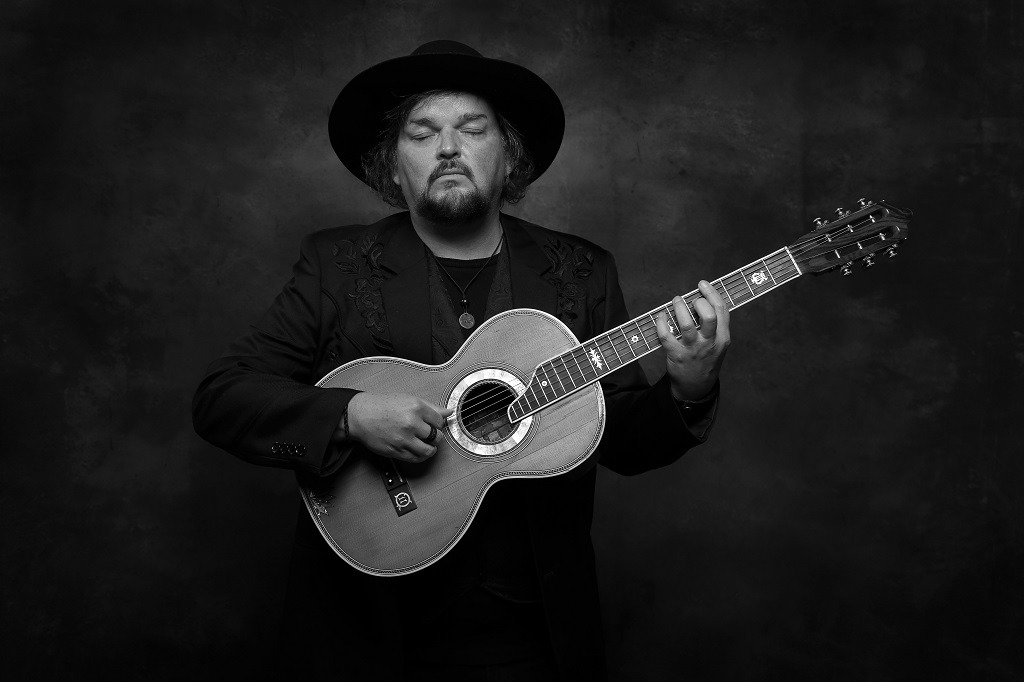 Alain Johannes (Photo: Stephen Linsley)
Alain Johannes (Photo: Stephen Linsley)
Euphoria Morning’s first single was ’Can’t Change Me’. What is your opinion: did creating the album changed Chris Cornell? Did it help him to get through that hard period in his life? Was he satisfied with the album? And you?
I think it helped the three of us evolve and grow. At the time of the recording and the tour after I never noticed it being a hard period for him. He was in a great mood, funny and full of energy. And I believe he was very proud of what we had accomplished as were we.
There aren’t two Chris Cornell-solo records that sound the same: his ideas, talent and mood for experimentation are recognizable on each of them. Still, for me Euphoria Morning is the most important, I find it the most complete. When I got familiar with Howling Book by Eleven, I realized what I missed in each solo album of Cornell: your and Natasha’s work. I mentioned this album because I reckon I see parallelism between this and Euphoria Morning. Were there any conscious links made between these records?
Thank you. Well, we are definitely present in Euphoria Morning as part of the creative fountain. Our connection with Chris and Soundgarden, they were hugely important and inspiring to Natasha and I. One changes when moved so deeply. We met them in ’91 and began our friendship and collaborations. So it’s folded in. When we recorded Howling Book, Jack Irons had come back after being in Pearl Jam a few years and we set out to create the album at 11AD much the same energy existed in those Euphoria Morning sessions. I’ve known Jack since we were kids so it was 3 closest friends creating without egos and for the good of the music.
There is also a musical and „constitutional” similarity that is stated by many artists about Cornell and you. They respect you both not only for your creativity, versatility and friendly personality but also because they can turn to you with confidence as a source of inspiration and motivation. What do you think what did Eleven add to Euphoria Morning, and what inspiration did you draw from it?
I think simply being there together and creating the album serving a higher purpose. It’s different than an Eleven album yet the process was similar. It’s all for the song. Create the world where it lives. Intuit what’s right and good to communicate that fully. It’s very lucky when you have not one, not two but three artists resonating so empathically towards a purpose. In terms of inspiration, it just felt amazing to have achieved such work and have fun doing it. And we learned and grew a lot from the experience of creating with Chris.
On his Higher Truth tour Chris used a simple stage-setting: fixtures emitted inness. The guitars and some things made the stage more homelike: a red phone and a vinyl, which Cornell played for the piano track of ’When I’m Down’. Both of these things were related to people who influenced Euphoria Morning: Jeff Buckley and Natasha Shneider. Natasha’s huge influence could have been the classical-music-like solutions in certain songs (like Follow My Way, Disappearing One) and strong overtones from Eastern-European musical literacy. Is this assumption somewhat correct?
Yes, Natasha definitely had that incredible natural sense of harmony. But both of those started as riffs or chord changes that I came up with and then, of course, we developed together. Pillow Of Your Bones one would think would be more from me originally but that was Natasha. We became blurred into each other’s creative stamp from such a long connection and partnership.
As I wrote above she had perfect pitch. It is often also involving a photographic memory so that the piece of music heard can be repeated or notated by the person who has perfect pitch afterwards. Natasha’s was very rare and strong. She would hear something and immediately imagine and work towards an elegance, a depth.
I read in an interview with you that your mother originates from Transylvania. You may know that the word ’eleven’ appears in Hungarian language as well but with completely other meaning: ’vital’, ’lively’, ’animated’, ’alive’, ’living’, ’cheerful’, ’vivid’, ’peart’, ’beany’, ’brisk’, ’crisp’, ’perky’, ’quick’, ’bobbish’, ’mettled’, ’unfaded’. Knowing your life-work, together with the huge personal loss, we wish you keep your ’eleven’ and versatile activity, and we hope you can visit us once in Hungary.
Haha, thank you so much that’s awesome. It was my grandmother, Zita actually. She was born in Kolozsvár/Cluj.
*
At the end of our correspondence, Alain Johannes wrote about what he is doing these days. After finishing the music for the videogame Ghost Recon Wildlands (2017), he was invited to participate in creating the music for its next part as well. So, his most recent compositions can be heard in Ghost Recon Breakpoint in October. His new solo album will be released late 2019 or early 2020. Although we have to wait for an Alan Johannes concert in Budapest, reckless ones can see and hear him in the Netherlands and the United Kingdom this autumn.
Since 1999 Alain Johannes talked on numerous platforms about the making process of Euphoria Morning in English and Spanish as well: for example in the documentary about his artwork (Unfinished Plan: The Path of Alain Johannes directed by Rodolfo Gárate) and also in Abbey Travis’s podcast (listen to it here).
His shows often contain a song written together with Chris Cornell and Natasha Shneider: Disappearing One. He performed this track with Nikka Costa on the Chris Cornell Tribute Concert in January.
I’m your disappearing one
Vanish when the curtain’s drawn
But I will come again, and you will let me in
And you’ll see I never disappear for long


